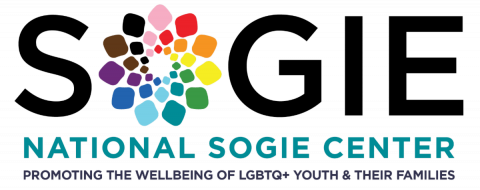SECTION TWO
Preparing for What Might Happen When You Come Out
Coming out as LGBTQIA2S+ to your family can lead to a wide range of reactions. This experience is deeply personal and unique to you. You may find that your family responds with love and support, creating a safe space for open conversation and understanding. This can strengthen your relationships and help you feel accepted for who you are. However, it's also possible that you could face negative reactions, such as rejection or confusion, which may make you feel isolated or anxious. Remember, it's normal for families to need time to process this new information. Regardless of the response you receive, it's important to seek support from friends, allies, or community resources to help you navigate any challenges that come your way during this significant moment in your life.
Understanding Your Parents' or Family's Reactions When You Come Out
When you come out as LGBTQIA2S+, your family may go through several stages as they process this news. These stages often include:
Shock
Initially, they may be surprised or in disbelief. This is a normal reaction that can last from a few minutes to several days.
Denial
They may struggle to accept the reality of your sexual orientation/gender identity, sometimes responding with confusion or anger. This phase can vary widely in expression.
Guilt
Some parents may blame themselves, wondering what they did wrong. This can be difficult for them to navigate and may take time for them to overcome.
Expression of Feelings
They will likely need to talk about their emotions and concerns. Be patient as they process these feelings.
Decision-Making
As they come to terms with your identity, they will start making personal decisions about how to support you moving forward.
True Acceptance
Over time, many family members reach a place of acceptance, often leading to a stronger relationship with you.
Some of these reactions, like shock, denial, and guilt, can feel very hurtful. Try to remind yourself that your parents and other family members may have been exposed to a lot of misinformation about sexual orientation and gender identity. In fact, most people have been shamed for stepping out of “traditional gender roles” by others, and they may even be carrying some of their own confusion or trauma due to those experiences. Remember, there is nothing wrong with you. You deserve to be in the world exactly as you are.
No matter how someone responds, please know that their response is a reflection of their feelings and knowledge on the subject—not a reflection of how valid you are as a person.
You may lose family members—this could be for a few days, weeks, months, or even years.
Very real risks can exist when you come out to the people who provide housing, food, and care to you. The power dynamics involved could lead to losing housing, stability, and basic needs support. Planning for this is crucial.
Connection is essential for us as queer people—it's what has kept the LGBTQIA2S+ community strong. If those we hoped would support us don't, having other relationships to lean on helps us stay grounded and connected.
Consider the level of acceptance or support you may receive from the people you plan to come out to. It's important to have realistic expectations while also hoping for positive reactions.
There are positive experiences that can happen when you come out as well. You may find support and understanding. You may experience joy, relief, and other positive emotions. The purpose of the next few sections is to make sure you are prepared for whatever you may experience. The next sections will walk you through developing your coming-out plan, and we will provide you will some script ideas on how you can address different situations.
Remember, you decide what feels right, when's the right time, and who are the right people to come out to. It's your journey! You got this! If you need some inspiration, skip to the section Benefits to Coming Out—Yes, Really! There Are Many!


